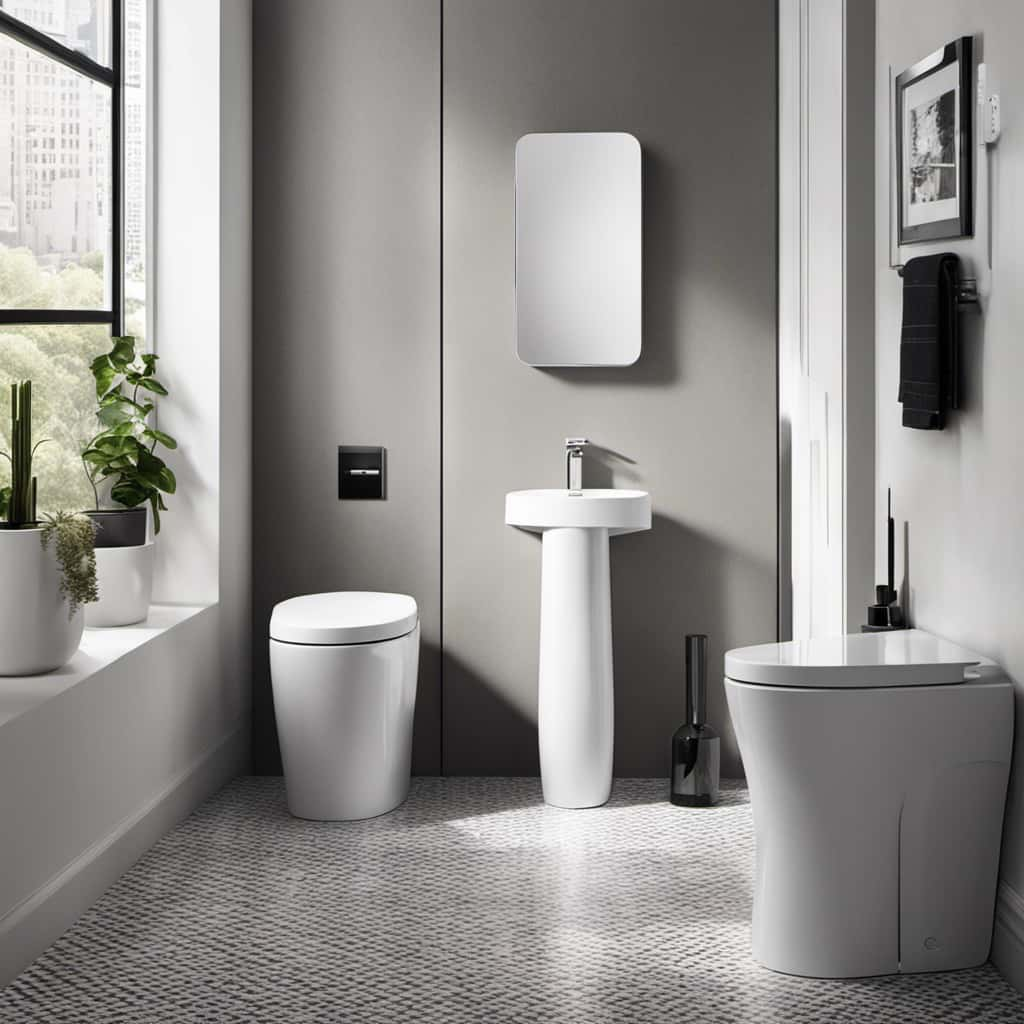You know how they say, “What you don’t see, you don’t worry about”? Well, think again when you toss those ‘flushable’ wipes down the toilet. Is it truly problem-free?
In this article, we delve into the question of how safe it is to flush these seemingly convenient products down the toilet. Using a scientific and technical lens, we explore the definition of ‘flushable,’ the impact on plumbing systems, and the environmental concerns associated with this practice.
So get ready to master the facts on flushing flushable wipes.
Key Takeaways
- The term ‘flushable’ is not regulated and can vary between different brands and products, leading to confusion among consumers.
- ‘Flushable’ wipes don’t disintegrate as easily as consumers are led to believe, and can clog pipes and sewer systems.
- ‘Flushable’ wipes can cause significant damage to plumbing systems, resulting in reduced water flow, backups, and burst pipes.
- Flushable wipes pose contamination risks in water bodies, harming aquatic life and disrupting ecosystems.
The Definition of ‘Flushable’ Wipes
We have found that the definition of ‘flushable’ wipes can be misleading and may not accurately reflect their actual flushability. Marketing tactics play a significant role in creating consumer confusion surrounding these products. Manufacturers often label wipes as ‘flushable’ to appeal to consumers looking for convenience and ease of disposal.

However, the term ‘flushable’ isn’t regulated and can vary between different brands and products. This lack of standardization leads to confusion among consumers who assume that all ‘flushable’ wipes will break down easily in water. Unfortunately, this isn’t always the case, and many wipes can cause clogs and blockages in sewer systems.
This raises concerns about the environmental impact and the potential cost to municipalities and homeowners. In the following section, we’ll explore the myth of easy breakdown in water and the implications it has on the flushability of wipes.
The Myth of Easy Breakdown in Water
Our research has revealed that the easy breakdown of ‘flushable’ wipes in water is a myth. Despite biodegradability claims made by manufacturers, these wipes don’t disintegrate as easily as consumers are led to believe.
Consumer misconceptions arise from the misleading labeling of these products as ‘flushable’, which gives the impression that they can be safely disposed of through flushing. However, studies have shown that these wipes can clog pipes and sewer systems, leading to costly repairs for homeowners and municipalities.
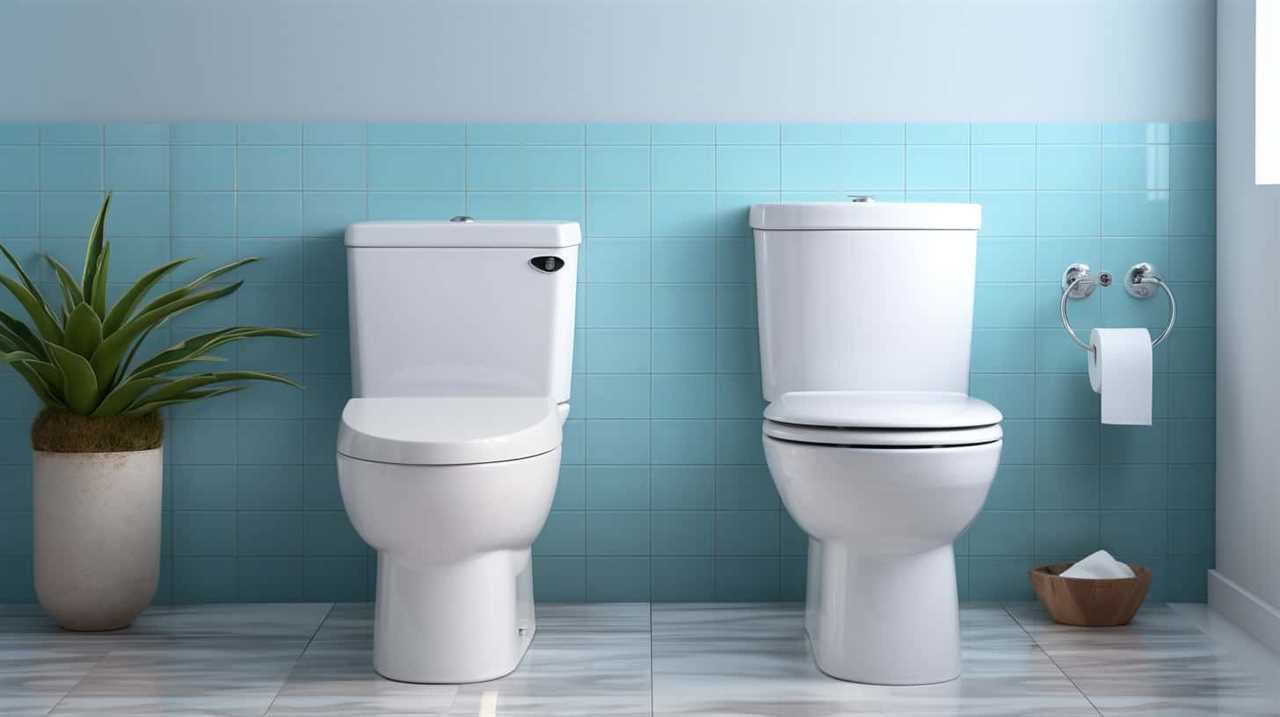
The problem lies in the composition of these wipes, which often contain synthetic materials that aren’t easily broken down by water. It’s important for consumers to be aware of these facts and to avoid flushing ‘flushable’ wipes to prevent potential plumbing issues.
The Impact on Plumbing Systems
Although manufacturers claim that ‘flushable’ wipes are safe for plumbing systems, the reality is that these wipes can cause significant damage.
When flushed, these wipes can accumulate and form pipe clogs over time. The non-biodegradable materials in the wipes don’t easily break down in water, leading to blockages in the plumbing system.
These clogs can result in reduced water flow, backups, and even burst pipes. The cost of repairs for these damages can be substantial, often requiring professional plumbing services. Plumbers may need to access the pipes and use specialized tools to remove the clogs, which can be a time-consuming and expensive process.
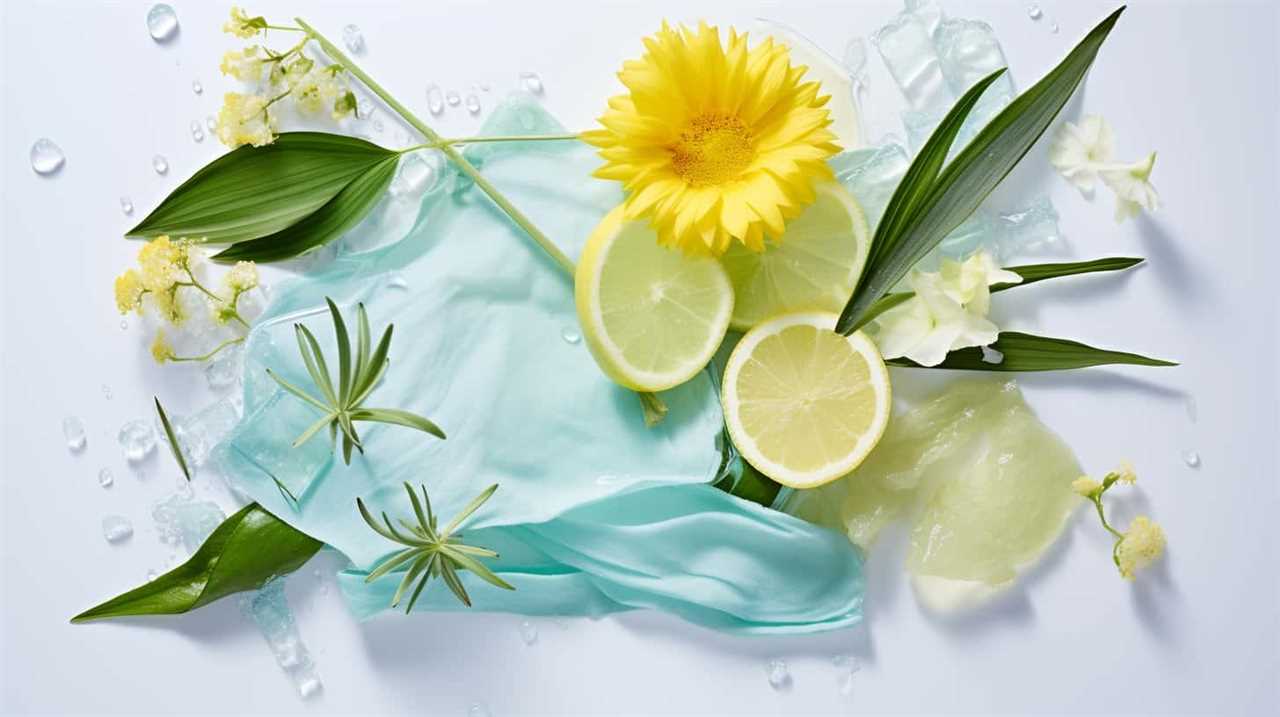
It’s important to understand the potential impact of flushable wipes on plumbing systems to avoid costly repairs and maintain the proper functioning of the system.
Environmental Concerns and Wastewater Treatment
When considering the impact of flushable wipes on plumbing systems, it’s important to also address the environmental concerns and the challenges they pose to wastewater treatment.
Flushable wipes can lead to contamination risks in water bodies and have long-term effects on aquatic ecosystems. These wipes aren’t easily broken down in the wastewater treatment process, unlike toilet paper, and can clog pipes, pumps, and filters. As a result, they can bypass the treatment process and end up in rivers, lakes, and oceans.
The presence of these wipes in water bodies can harm aquatic life and disrupt the balance of ecosystems. It’s crucial to find alternatives to flushing flushable wipes to mitigate the contamination risks and protect the health of our water bodies.
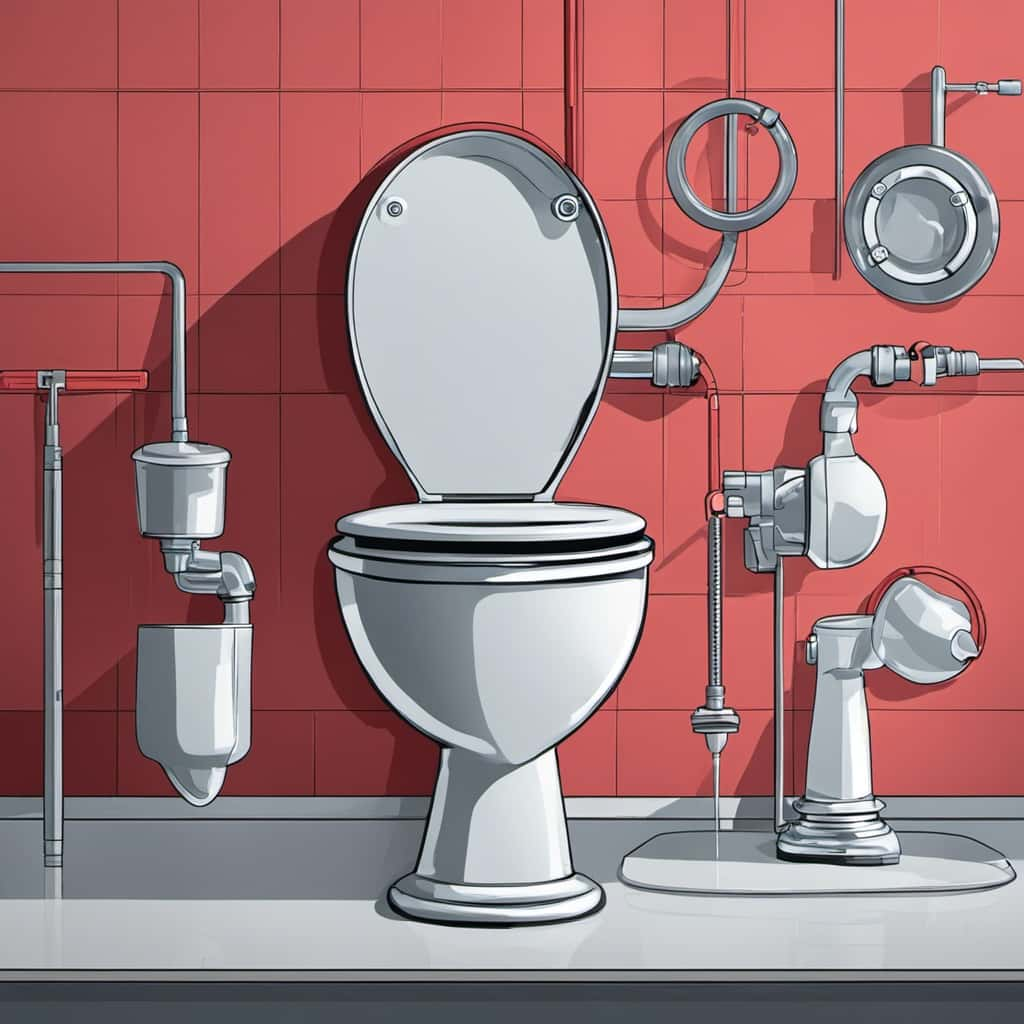
Alternatives to Flushing Flushable Wipes
To address the challenges posed by flushable wipes and mitigate contamination risks, we can explore alternative methods of disposal. Sustainable options are available that not only reduce the environmental impact but also ensure proper disposal.
One such option is to dispose of flushable wipes in the trash instead of flushing them down the toilet. This method allows for the wipes to be collected with other solid waste and sent to a landfill where they can decompose naturally over time.
Another alternative is to use reusable cloth wipes instead of disposable ones. These cloth wipes can be washed and reused, reducing the amount of waste generated.
Proper disposal methods are crucial in maintaining a clean and healthy environment, and by exploring sustainable options, we can reduce the risks associated with flushing flushable wipes.
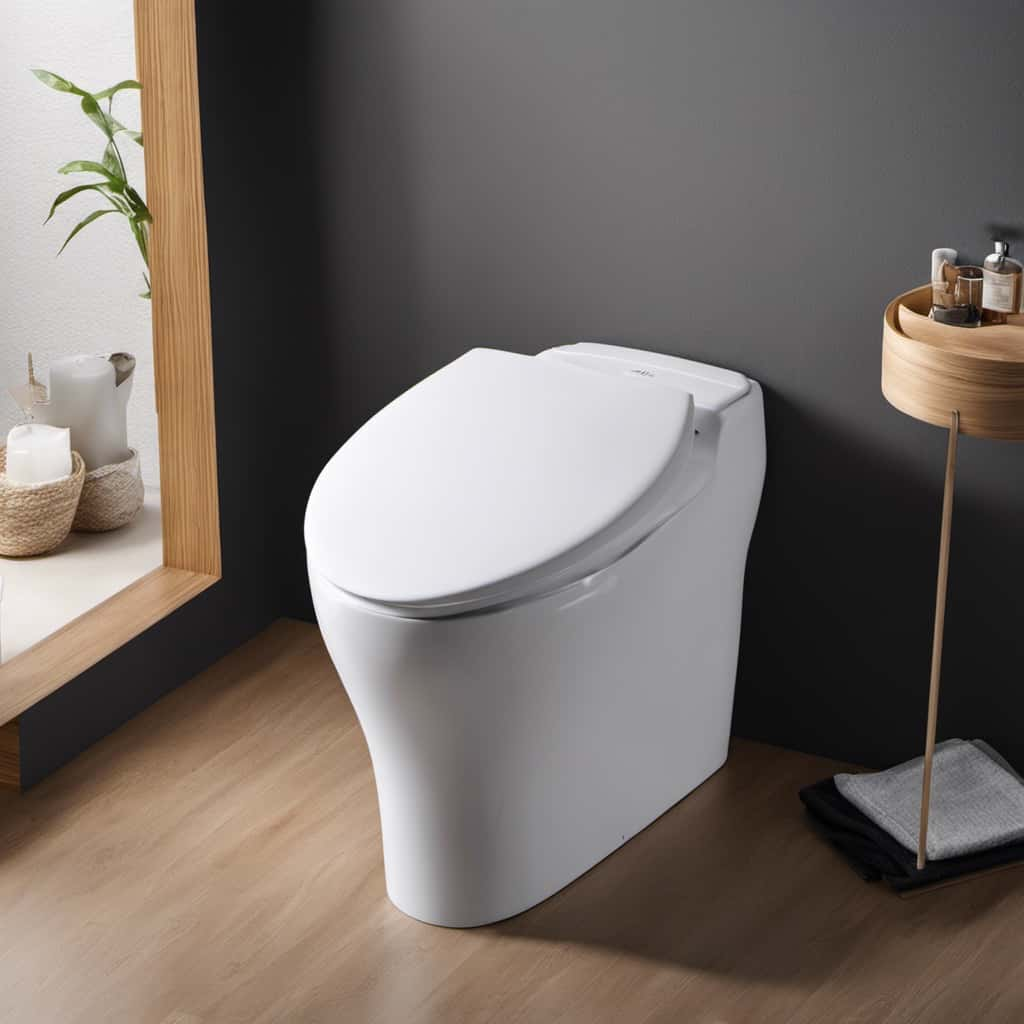
Frequently Asked Questions
Can I Use Flushable Wipes in Septic Systems?
Flushable wipes can harm septic systems. It’s safer to avoid flushing them. Alternatives like biodegradable toilet paper or wet wipes specifically designed for septic systems are available. It’s important to prioritize the health and functionality of septic systems.
What Are the Most Common Materials Used to Make Flushable Wipes?
The most common materials used to make flushable wipes include cellulose fibers, polyester, and viscose. These wipes offer the advantages of convenience and cleanliness, but their environmental impact should be considered when choosing to flush them.
Are All Brands of Flushable Wipes Equally Safe to Flush?
All brands of flushable wipes are not equally safe to flush. Some may cause environmental impact due to their non-biodegradable materials. Alternatives to flushable wipes for personal hygiene include using toilet paper or bidets, which are more eco-friendly.
Can Flushing Flushable Wipes Lead to Blockages in Municipal Sewer Systems?
Flushing flushable wipes can lead to blockages in municipal sewer systems, causing environmental damage. We should consider alternatives for personal hygiene, such as biodegradable toilet paper, to minimize the impact on our sewer systems.
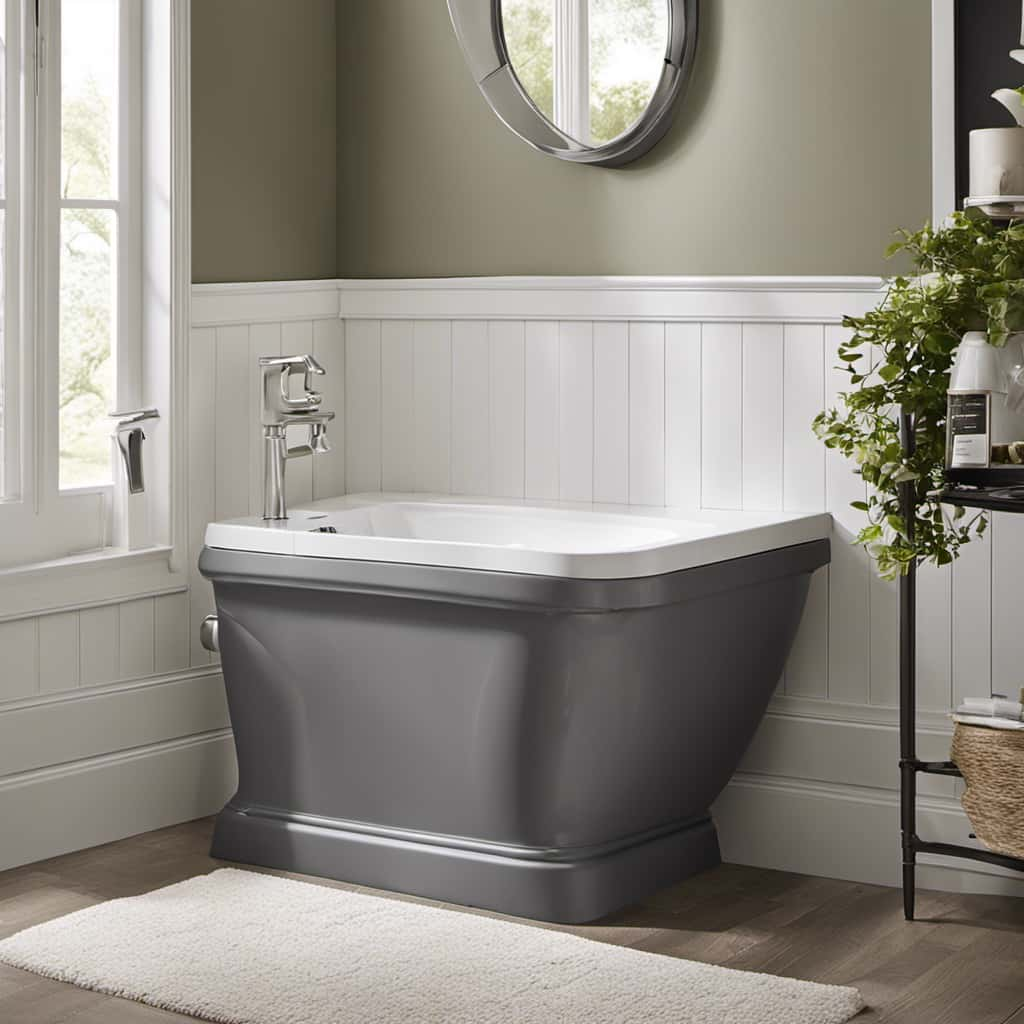
Are There Any Specific Instructions or Precautions to Follow When Flushing Flushable Wipes?
When it comes to flushing flushable wipes, it’s important to follow proper disposal methods to avoid any environmental impact. We must be cautious and adhere to specific instructions and precautions for the safety of our sewer systems.
Conclusion
In conclusion, while the term ‘flushable’ may suggest convenience, the reality is far from it. Like a deceptive mirage in a desert, flushable wipes may seem harmless, but they pose significant risks to plumbing systems and the environment.
Scientifically speaking, it’s best to avoid flushing these wipes altogether. Instead, opt for more environmentally-friendly alternatives that can help protect our infrastructure and preserve our precious water resources.

